Darren Criss on American Crime Story and the role of homophobia in Gianni Versace’s death
Ryan Murphy's riveting true-crime drama comes to a close on BBC Two tonight (April 25).
By Will Stroude
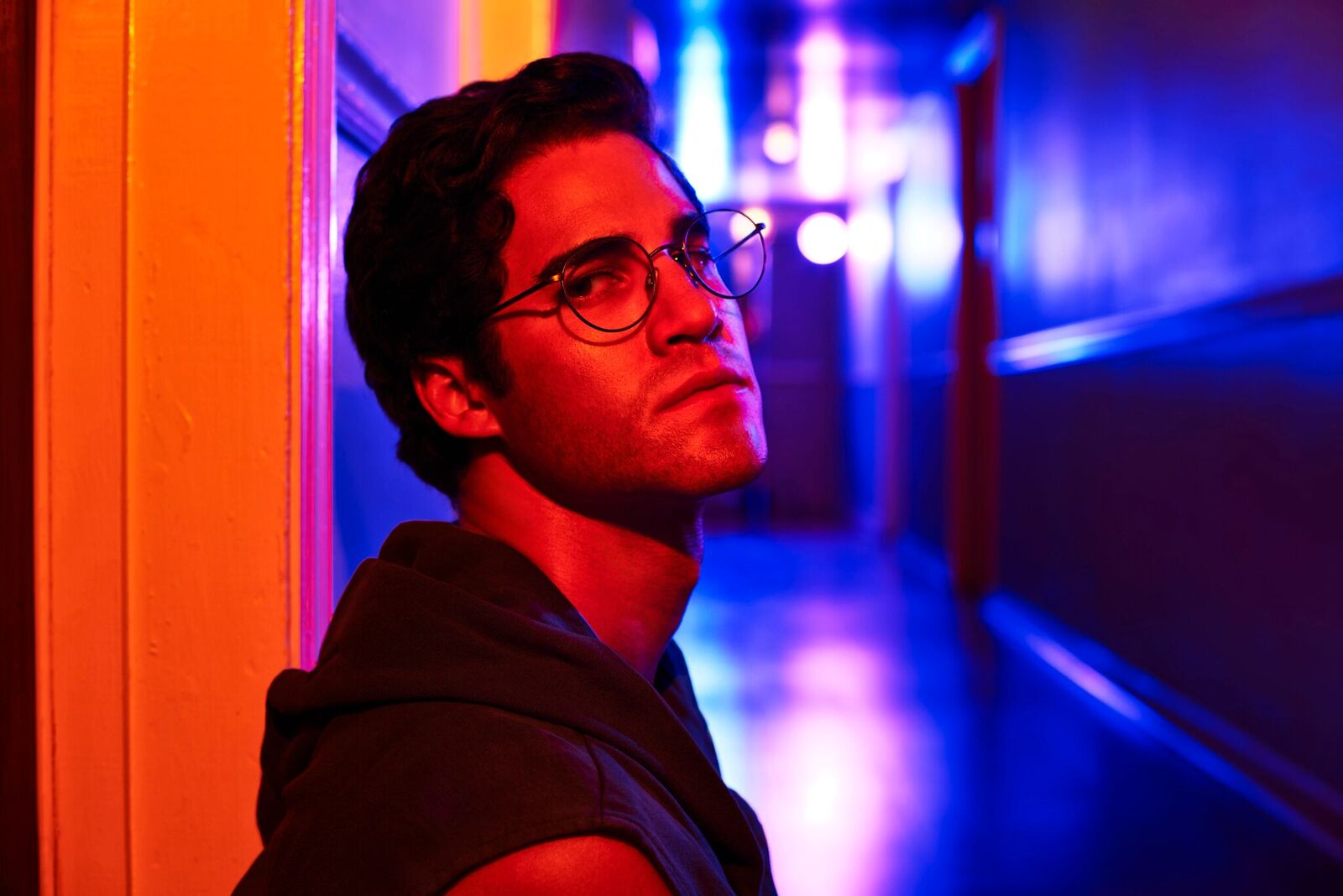
The Assassination of Gianni Versace: American Crime Story airs on BBC Two tonight (April 25) as the story of US serial killer Andrew Cunanan comes to a bloody conclusion.
Ryan Murphy’s nine-part drama series has won critical acclaim for its riveting exploration of wealth, sexuality and power in ’90s America, and Darren Criss’s mezmerising, haunting portrayal of Cunanan is generating plent of awards buzz – and rightly so.
We caught up with the former Glee star ahead of the finale to find out how he how he got inside the mind of one of America’s most notorious spree killers, what he’s learnt from playing gay roles on two of Murphy’s most memorable shows, and what he makes of the Versace family’s criticism of the show…
Obviously The Assassination of Gianni Versace is a true story but there are bits people may not have known before: Were you completed clued in before you got the role or did you have a lot to learn about it too?
I knew about as much as I think most people tuning in knew. I think unless you were living in Miami in the 1990s or very active in the gay community I don’t think you’d know a whole lot about [Andrew Cunanan] other that what he was most famous for, which is of course the Versace murder. So that’s all I kind of knew. I think the number one surprising thing for everybody is ‘oh my God, I didn’t know he’d killed all these people and Versace was actually the last of five’. And yeah there was a scale to it that I wasn’t familiar with until I got involved, the same as most people tuning in.
How did you go about researching Andrew?
Everybody wonders ‘how did I now know this?!’ and I think the show does a good job of explaining why we didn’t know this. The cool thing about American Crime Story as a series is that we’re exploring crimes that surround a crime. [The People vs. OJ Simpson] wasn’t about OJ’s trial so much as it was about the sort of social and political climate around the OJ trial and how that climate affected the trial itself. So for us obviously there’s this homicide and this very public, very tragic spree killing that has happened during a very specific time for homophobia in the United States in the 1990s. Because yes, somebody like Versace being killed would make the news, but these other men may not have been world news at the time, or even local news. It’s a Shakespearean tragedy; this fall from grace of somebody with enormous potential. Other than the obvious heart-breaking things about the tragedy of these homicides, the tragedy to me is the complete and utter loss of promise and potential. Someone who was clearly gifted and could really have used said gifts to create something, decided to use it to destroy. And that’s the real heartbreak and the ‘American Crime’ really, and how that was allowed by a series of circumstances.
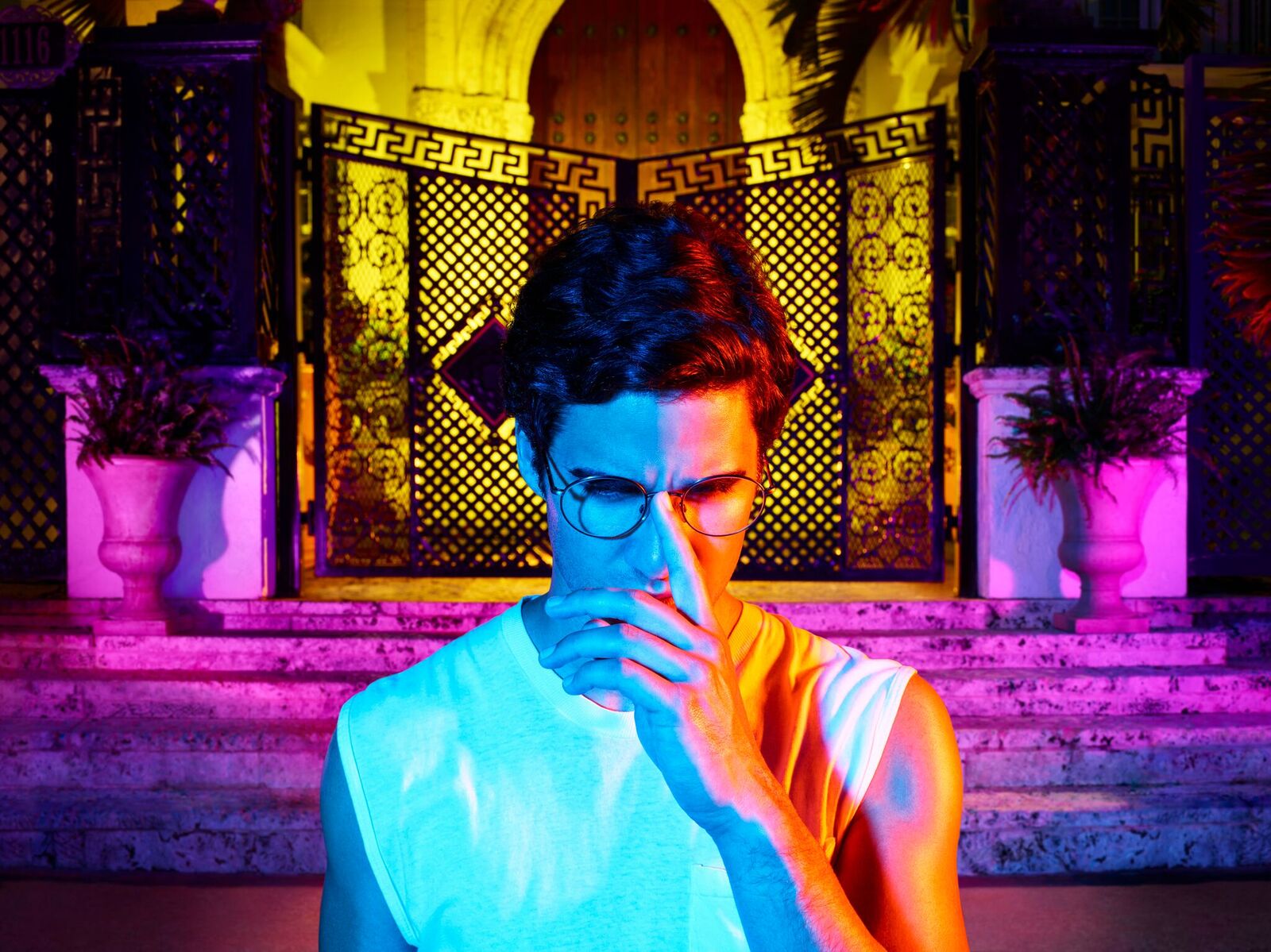
One of the dangers with this sort of project is glamorising a killer. Is that something you talked about, and how to avoid it?
If that is ever the way someone perceives it that’s sort of out of our hands. In my mind it’s obviously deplorable – it’s pretty obvious on the moral spectrum where we stand – and I don’t think it glamorises. If anything, it begs the question of ‘how did we get here? How did this happen?’ What’s interesting about it going in reverse is that it’s almost an unintentional redemption story, in the sense that you’ve seen somebody at their worst, and as you go back we’re really hoping to find a reason to sympathise. I think, or I hope, that people tuning in are holding on for some sort of humanity and praying that you find something that can somehow make sense of all this stuff. In that sense I don’t think it’s glamorising so much as investigating and doing what I think in storytelling is so important: you know how the story goes, but it’s the how and the why that really makes us rethink what’s in front of us.
Did you empathise with Andrew at all?
Well it’s my job, yeah. But that’s my job, it’s not the audience’s job. There’s no need to exonerate or forgive – these are horrible things that just break my heart, and people are still alive today that are still very much affected by the echoes of something 20 years ago. The thing about our show is I’m not just playing a killer: we see him at his best, and he was loved, and he had lovely moments with people. The minutes that Andrew spent doing terrible, terrible things are in the minority of his entire life. And he didn’t follow the typical prerequisites of the ‘American serial killer’. You know , if you think of people like Jeffrey Dahmer, Charles Manson, these people had clear-cut behavioural patterns that pointed towards what they would eventually be known for, whereas the year before Andrew went on this killing spree he was living in a beautiful house on the beach, and the people that found out about this were mortified – this was their friend. So the things I latch on to are the common denominators we can all relate to: wanting to be liked, wanting to take care of your friends, knowing what it’s like to want to rise above your station, unrequited love. So yeah I do, and I did, empathise with him, because you have to.
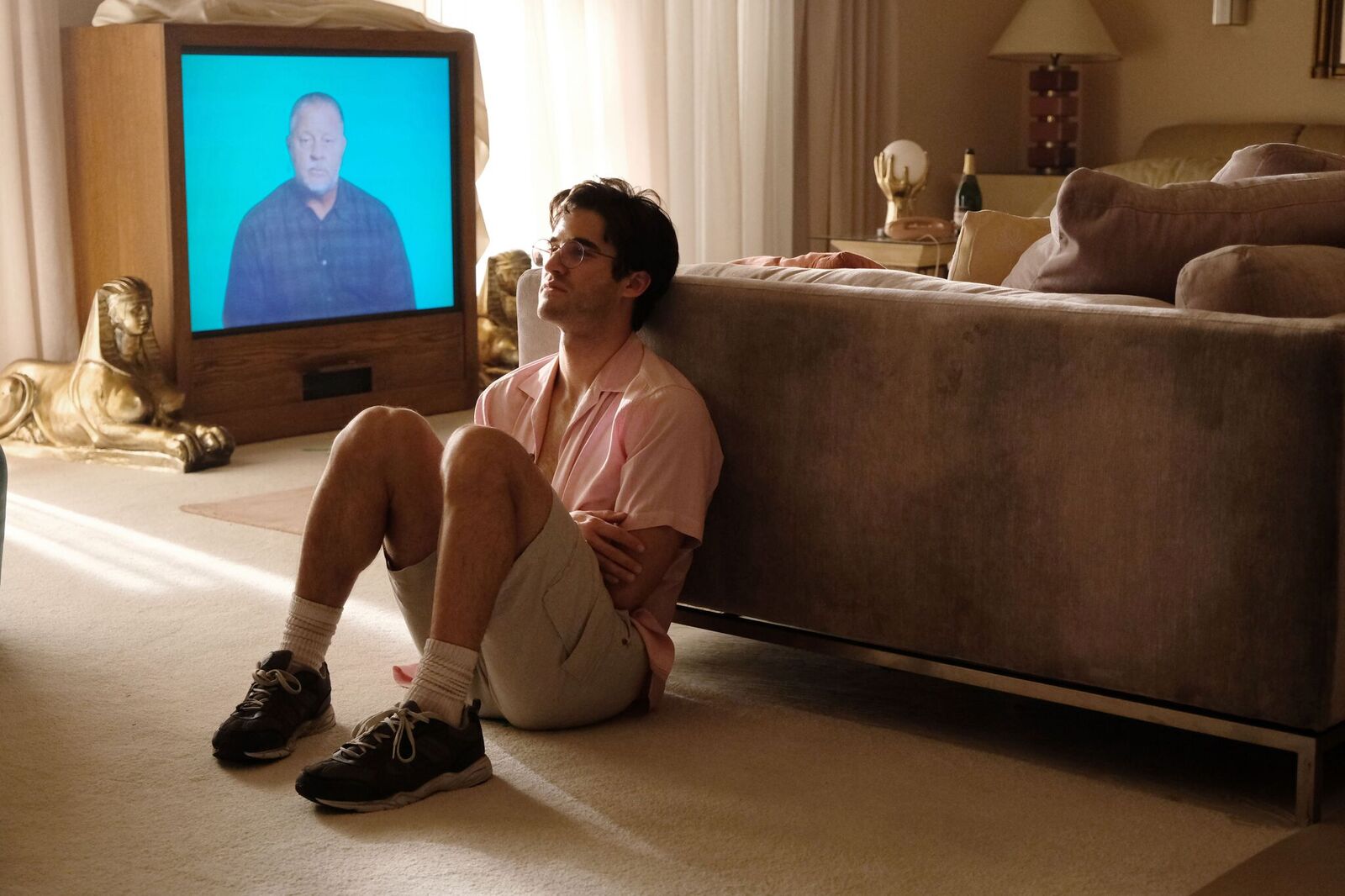
Did you speak to any people that knew him?
You know, they came to me. He had this very ubiquitous presence. Everybody has an Andrew story. And I will say the majority of them are quite lovely. The majority are like ‘I went to high school with Andrew and he was so good to me, and you just go ‘Oh my god, I don’t want to hear that’. I mean, I do, but it’s just so sad. But [as for] research, unlike the OJ trial where there’s an overwhelming amount of media records and things that are just public knowledge, there’s no video, there’s, like, nothing on Andrew, which in a way is nice as an actor because you’re not playing the impersonation game. I had that variable eliminated, which was nice – you just have to look at what has happened and try and fill in the emotional gaps.
Obviously Andrew has this chameleon identity, but when you were tackling the role did you see him as someone who was conflicted about his sexuality?
I mean I think he was constantly at war with himself. I think he utilised his homosexuality where it was convenient and where it gave him any kind of status, whether that was in the gay community or in the world at large. If it made him fun and different and interesting in certain circles he would abuse that power, but where it was frowned upon or subversive he would shy away from it where convenient. And whatever sexuality you identify with, to have that kind of dichotomy of you own identity is a pretty [destructive] thing, to never really be sure or when you can be yourself or not, or even what your self is. But what’s so interesting about the time and place in which the show happened, I feel like he world he was in almost inadvertently encouraged his behaviour. I think especially at that time, you know, right in the middle but after the AIDS scare in the United States, you have a lot of men who are, even if they’re out, struggling with where they stand on their gay identity. And when you have someone like Andrew caught in the middle of this i in a world where a lot of closeted men are living behind closed doors. And so Andrew compartmentalising different parts of himself to different people… if you saw how different he was acting, maybe you would sort of understand this if you were doing this in your own life. There was this understanding that compartmentalising your identity was the way you could survive at this sort of time.
Do I think he was conflicted? Yeah. But unfortunately, that conflict was kind of supported unconsciously at the time. It’s a crime of the times. I mean, this the largest failed manhunt in FBI history, ever. And it has a lot to do with this disconnect between government bodies and this fear and misunderstanding of gay communities. [Andrew] was out in the open, in broad daylight, and they couldn’t find him. That has to do less with the genius of Andrew – although hat’s a big part of it – but also the disconnect of government bodies like the FBI.
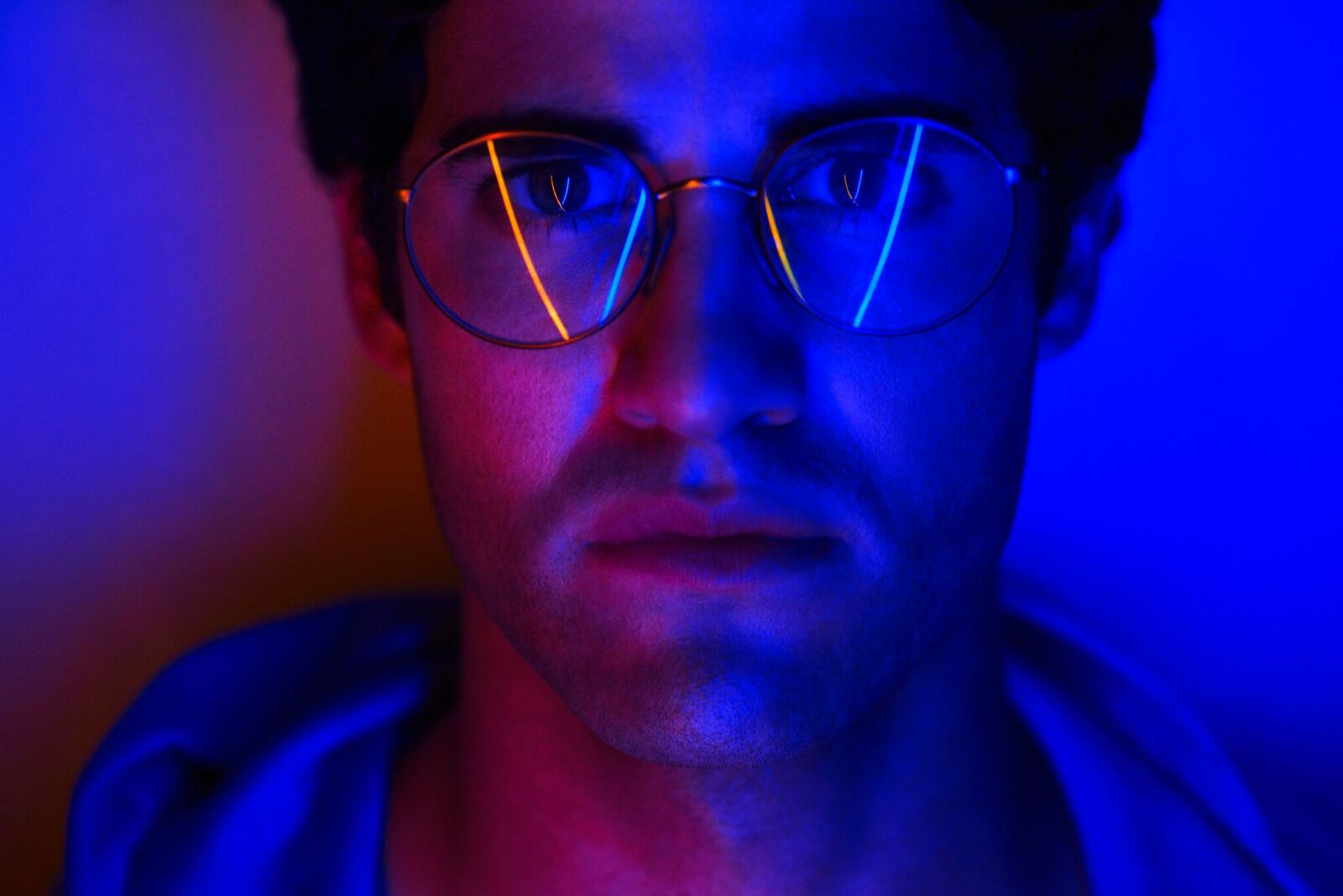
Having played gay roles in two major shows from Ryan Murphy. As a heterosexual actor, what have you learnt about the gay experience?
Well they’re two very different ones. Glee was really an extraordinary – especially for primetime television with mass appeal for young people – beam of positivity and a wonderful example to set, and to be a part of that was really a thrill. This is really the opposite end of the spectrum in displaying the turmoil of the gay male identity, especially in the navy and the military. I think it’s really cool that I’ve been able to be a part of both sides of that narrative; to see how far we’ve come and how far we have to go.
At the point at which the series gets quite violent, what sort of headspace did you have to get into?
This is a very bizarre comparison but things like intimate, sexual scenes or violent things, these are actually very simply human emotions: Rage, passion, these are things that we have fast-tracked access to. Those aren’t’ as difficult to do as things that are much more psychologically complex. I think the hardest scenes for me were the bits of psychological warfare between two people. Those are things where after ‘cut’ I go ‘ugh’, and I feel like I have to sit down and wipe myself clean of this awful thing I just said to somebody. The violence is very technical, it’s fake, and you don’t really feel the trauma of it until you see it on screen with the effects and the sound put in. That’s when you go ‘oh my God this is horrible’. The thing that stuck with me was within the first two weeks of shooting, there we were in Miami in front of the steps recreating this infamous murder – and this isn’t on a sound stage, this in broad daylight, in a very public place in the exact same spot. That was tsunami of weight, and it really gave me pause. Yes, you’re telling a story and there’s cameras on, but it really felt bizarre to be doing this where it happened.
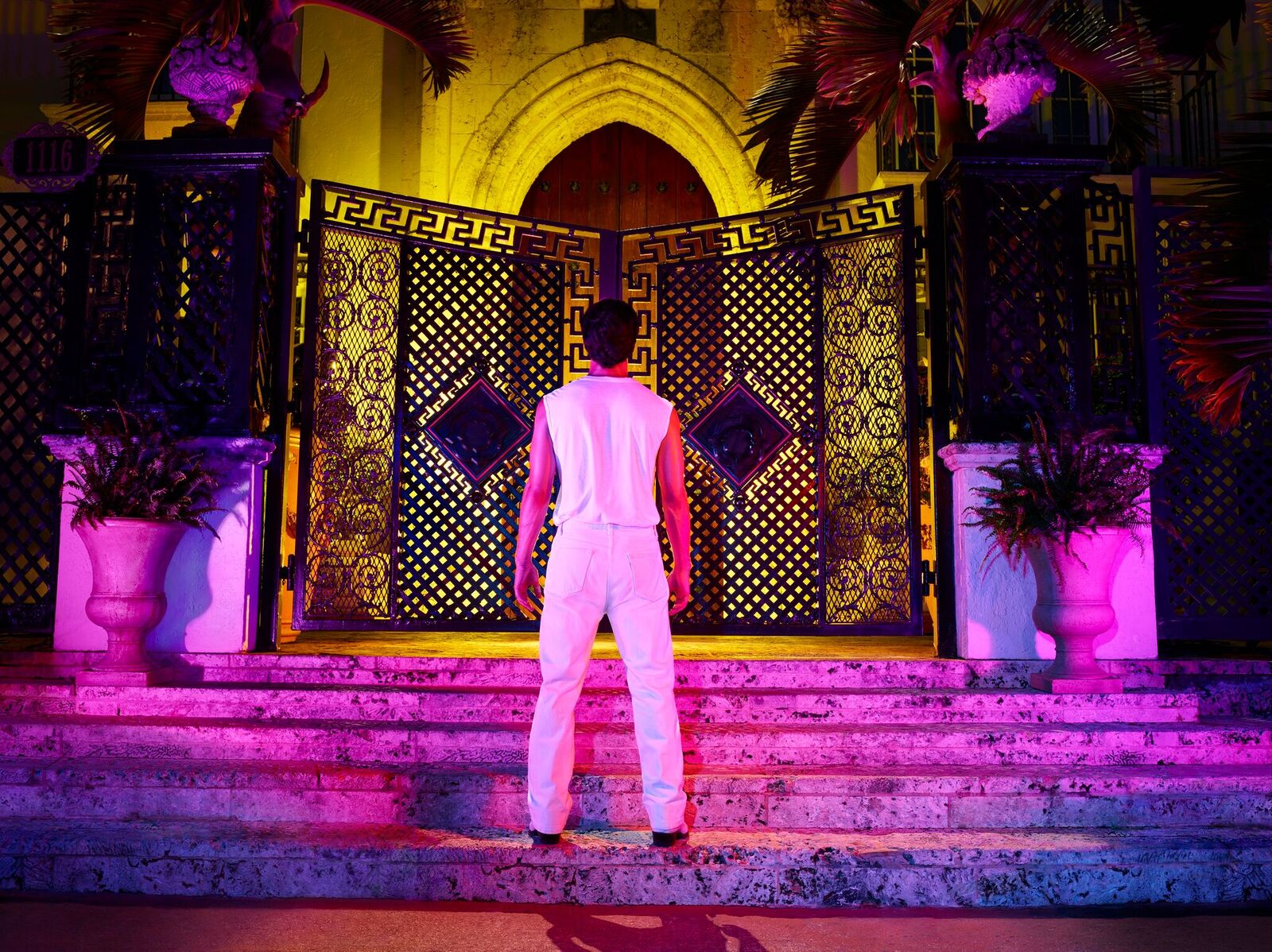
The Versace family and others involved have had a lot to say about seeing this tragedy dramatised, and perhaps not being particularly happy about it. What kind of position does that put you in as an actor?
Gosh, I mean if any of these things had happened to somebody I loved, I would be equally as vocal about it, and if I had the public platform the Versaces did I would say the exact same thing. I think they have every right and every reason to feel the way they do, who doesn’t understand that. My heart goes out to them regardless of whether [or not] we made a show. What I hope they understand is that we’re not exploiting a story for commercial value: there’s a larger story at play here which isn’t about this one horrible thing, which is the Versace murder, but the investigation, the exploration of a time, and of course the other victims which until now haven’t had a lot of voice, at least in popular culture. I hope they would understand, and I’d like to think that if I’d ever had the chance to meet Gianni Versace I would have hoped he’d understand that we’re trying to create some light out of this darkness.
Ricky Martin has said that homophobia killed Versace. Coming at the show from Andrew’s perspective, I wondered what you take is on that statement.
I think there’s a lot to that. It’s not just that, but I think that’s not an incorrect statement at all. It’s a huge part of it, especially when it comes to the investigation. When we use the word homophobia I don’t think it necessarily involves the extreme end of what that means – hate crimes and violence – but it exists in smaller, systematic ways. A lot of these investigative bodies not wanting to go into gay clubs to post flyers, not because they’re afraid of gay people but because they weren’t sure that was something they could do or they were sacred of the way it would be perceived. The media exposure on Andrwe Cunanan in geneal before Gianni Versace was killed probably had a lot to do with the media’s fear of exposing ‘gay murders’, especially after Aids, [which was] a very hot-button topic; [Andrew’s] own fear of himself and not wanting to be this thing, or maybe he did, but not in certain circles. It manifested itself in so many different ways, in so many different bodies, that yeah, I think the amalgam of that did probably kill him. But it’s a very complex thing. There’s a history of mental health [issues] in [Andrew’s] family, the social-economic situation – which has nothing to do with his identity. It’s really a cocktail of unhealthy things that were already in place, that thing like homophobia in the world around him was the right, wrong catalyst to make it blow up.
The finale of The Assasination of Gianni Versace: American Crime Story airs tonight at 9pm on BBC Two.
